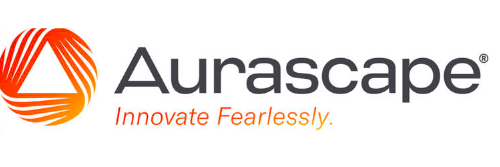The artificial intelligence market is entering a new phase in 2026. Investors and business leaders are focusing less on general-purpose models and more on AI agents designed for specific tasks. Demand is highest in fields where errors can have legal, financial, or safety consequences, like software development, legal services, healthcare, security, and customer support.
The most successful startups are not competing to build the biggest models or top public benchmarks. Instead, they aim to cut expensive manual work in regulated industries. These companies build AI tools for one main job, train them with industry-specific data, and use them where accuracy and control are crucial. Businesses are adopting these tools because they deliver clear results, such as faster task completion and lower costs.
This article features AI startups with the fastest growth and most funding as 2026 begins. These companies work in different regions and show where businesses are investing in AI this year. Many are already well-known, but the key question is which ones will keep growing and become lasting leaders as AI is used more in real-world operations. more
The Rise of Generative AI and New Models
The rise of generative AI and powerful large language models (LLMs) is the main driver behind a new generation of AI startups. Access to new models and advanced algorithms is accelerating the pace of AI development, allowing founders to build highly focused AI applications that solve specific problems.
While much of the public focus has been on digital applications like content generation and code completion, a new trend is emerging: the application of AI to solve challenges in the physical world. Startups are increasingly deploying sophisticated AI systems to collect and analyze data from critical infrastructure, providing insights for industries that form the backbone of society.
There are a huge number of startups that are using AI to develop new technology, trying to create the next best thing. Tech companies are giving early access to new platforms to gather real-time feedback to speed up the development process, resulting in updates that offer real value, high accuracy, and up-to-date information.
Top AI Startups in 2026
The following startups represent some of the most promising ventures in the artificial intelligence industry. This list highlights seven businesses that are poised to make significant contributions to our daily lives over the coming years. They are chosen based on funding, technological innovation, and their potential impact on various industries.
Vertical AI Agents
Vertical agents are built to perform defined job functions (e.g., software engineering tasks, legal drafting workflows, patient outreach) rather than act as general-purpose assistants. Buyers evaluate them on domain fit, workflow integration, and risk controls.
Coding Agent
1. Cognition (Devin)
Cognition created Devin, an AI tool that works as an autonomous software engineer. Devin follows high-level instructions, writes and updates code in entire repositories, runs tests, and submits pull requests with little supervision. Teams mostly use it for routine engineering tasks, allowing developers to spend more time on design and problem-solving.
Advantages
- Able to plan and execute multi-step development tasks from start to finish.
- Handles work across repositories, testing, and pull requests without needing frequent instructions.
- Helpful for repetitive engineering tasks like fixing bugs, refactoring code, and building internal tools.
Disadvantages
- Needs a thorough review before merging code.
- Not as effective when product requirements are unclear.
- How well teams adopt Devin depends on their comfort with letting an AI work independently.
2. Cursor
Cursor is an AI-first code editor created to accelerate software development. The platform is built as a fork of VS Code and is designed to allow developers to build software in partnership with artificial intelligence. It enables complex tasks like editing, debugging, and understanding large codebases through natural language commands, making it one of the most integrated AI programming tools available.
Advantages
- Deep integration of AI tools directly into the editor workflow.
- Ability to reason across an entire codebase for more accurate suggestions and edits.
- Significant time savings on tasks like writing boilerplate code, debugging, and documentation.
Disadvantages
- Can be resource-intensive compared to traditional code editors.
- Requires developers to adapt their workflow to a new, conversational style of coding.
- It is a proprietary platform built on an open-source foundation, which may be a concern for some organizations.
Ideal for: Developers and engineering teams who want to maximize their productivity and adopt an AI-native approach to writing and maintaining software. It is especially useful for working in and getting up to speed on large, unfamiliar codebases.
Legal AI
3. Harvey
Harvey creates AI tools designed for legal work. These tools are trained to understand case law, contracts, and legal reasoning. They help with research, drafting briefs, and answering legal questions specific to each firm. Law firms use Harvey to save time on routine document review and research.
Advantages
- Made for legal professionals.
- Helps save time on research and drafting.
- Uses legal data that fits how firms work.
Disadvantages
- Needs review by experienced legal professionals.
- Not meant for use outside legal work.
- The quality depends on how current and detailed the firm’s data is.
Best fit: Firms with repeatable document workflows and strong knowledge-management practices.
4. EvenUp
EvenUp helps automate parts of the personal injury claims process. It reviews medical records, bills, and case materials to estimate damages and create reports. Plaintiff-side law firms and claims specialists use it to reduce manual work and speed up case preparation. The company announced a $150M Series E investment in October 2025
Advantages
- Cuts down on manual document review for claims cases.
- Creates organized estimates and reports.
- Helps firms handle more cases at once.
Disadvantages
- Needs a person to review results before filing or settling a case.
- It mainly works for personal injury cases, so it has limited use in other areas.
- How accurate it is depends on the quality of the original records.
Healthcare AI
5. Hippocratic AI
Hippocratic AI creates voice-based AI tools to support patient outreach, follow-ups, and care coordination. These tools are made for clinical settings to improve communication with patients and reduce the administrative work for care teams. Health systems use them to remind patients about appointments, check in with them, and handle basic triage.
Advantages
- Automates routine communication with patients.
- Helps clinicians spend less time on administrative calls.
- Works across different languages and schedules.
Disadvantages
- Needs clinical staff to oversee its use.
- Does not replace trained medical professionals.
- Response quality can change depending on how patients speak.
Best fit: Clinics and hospitals needing faster language access for routine encounters.
6. Opalite Health
Opalite Health offers live medical interpretation with AI for situations where patients and providers speak different languages. It works with both telehealth and in-person systems, helping doctors and care teams communicate more accurately with patients who use other languages.
Advantages
- Helps doctors and staff communicate in multilingual settings.
- Cuts down on delays from scheduling human interpreters.
- Operates in real time during patient consultations.
Disadvantages
- Does not fully replace professional medical interpreters.
- Performance depends on audio quality and different dialects.
- Limited by the available training data for rare languages.
Best fit: Clinics and hospitals needing faster language access for routine encounters.
Robotics & Physical Labor
7. Figure AI
Figure AI is a robotics company with a focus on creating autonomous humanoid robots. Its goal is to develop general-purpose robots that can perform a wide range of tasks in real-world environments, from manufacturing to logistics. The company’s use of computer vision and advanced control systems allows its robots to interact with and learn from their surroundings.
Advantages
- Addresses labor shortages in physical industries.
- It has secured significant funding and partners like OpenAI and Microsoft.
- Its robots are designed to operate in human-centric environments.
Disadvantages
- Hardware development is capital-intensive and has long development cycles.
- Mass-market deployment faces significant regulatory and safety hurdles.
Best fit: Large industrial operators evaluating multi-year automation roadmaps.
Industrial Operations
8. Remberg
Remberg is a German software startup that secured a €15 million Series A in 2025. The company’s AI-driven platform provides predictive maintenance for industrial machinery. Analyzing machine data helps companies anticipate failures, streamline repairs, and extend the lifespan of their equipment.
Advantages
- Directly improves operational efficiency and sustainability for industrial clients.
- Delivers a clear and demonstrable return on investment by reducing downtime and waste.
- As a software platform, its solution is highly scalable.
Disadvantages
- Requires successful integration with a client’s existing, and often legacy, industrial systems.
- The quality of its predictions is dependent on the quality of the client’s machine data.
- Competes in the crowded market for Industrial Internet of Things (IIoT) and asset management software.
Best fit: Manufacturers with measurable downtime costs and instrumented equipment.
Developer Infrastructure
These companies provide platforms, models, and systems that enable enterprises to build, deploy, and control AI at scale.
Enterprise Search
9. Sierra
Sierra creates AI agents that help customer support teams manage multi-step service tasks. These agents connect to backend databases and ticketing systems, enabling them to answer complex questions, update records, and resolve issues without a person at every stage. Companies use Sierra to speed up responses and automate routine support work. Sierra announced a $350M raise at a $10B valuation in September 2025.
Advantages
- Manages organized service tasks across different systems.
- Lowers the workload for human support teams.
- Connects directly to tools like ticketing and CRM systems.
Disadvantages
- Needs setup to work with a company’s internal systems.
- Still requires people to review unusual or complex issues.
- How well it works depends on the quality of its connections to other systems.
10. Glean
Glean provides a search across internal company tools and data sources, including messaging platforms, file systems, and knowledge bases. Employees use Glean to find answers and documents without switching between apps, helping teams work more efficiently and reducing time spent tracking down information.
Advantages
- Searches across multiple internal platforms from one interface.
- Reduces time spent looking for documents and answers.
- Supports natural language queries rather than keyword-only search.
Disadvantages
- Requires the indexing of all connected systems before full effectiveness.
- Search quality depends on underlying permissions and metadata.
- Not designed for external customer search use cases.
Best fit: Mid-to-large orgs with many SaaS systems and heavy internal knowledge reuse.
11. Operand
Operand is an AI platform created to automate and replace the functions of traditional business consulting. A 2025 graduate of Y Combinator, the company’s initial focus is on the e-commerce sector, where its software analyzes a client’s internal data to provide and execute optimal pricing and promotion strategies. Its ability to demonstrate a direct, positive impact on a company’s finances has generated significant early interest.
Advantages
- Delivers a clear and measurable return on investment for its clients.
- Targets a specific and high-value business problem.
- Has strong institutional backing from a top-tier accelerator program.
Disadvantages
- High reliance on accessing sensitive and complete client data.
- Proving its models are effective across different industries will be a key challenge.
- Its initial market is focused on e-commerce, which may limit broader growth until the platform expands.
Ideal for: E-commerce businesses and online retailers looking for a data-driven, automated solution to optimize pricing, manage inventory, and increase profitability.
Model Providers
12. Cohere
Cohere specializes in building large language models specifically for enterprise use. The company’s platform allows businesses to deploy powerful AI that is customized for their specific needs, with a strong emphasis on data privacy and security. Their models can be used to improve tasks like customer support, summarization, and internal search.
Advantages
- A clear focus on the needs of enterprises.
- Offers flexible deployment options, including on a private cloud.
- Designed to work with a company’s unique data.
Disadvantages
- Less public brand recognition compared to consumer-facing AI companies.
- Enterprise sales cycles can be long and complex.
Ideal for: Large organizations that need to build and deploy secure, customized AI solutions to enhance their products and internal operations.
AI Deployment & Infrastructure Serving
13. Baseten
Baseten provides infrastructure for deploying and serving open-source AI models at scale. It offers tools that help engineering teams host models such as Llama, manage endpoints, and monitor performance in production environments without building and maintaining their own serving layer. Organizations use Baseten to reduce the operational work tied to deploying custom models.
Advantages
- Simplifies hosting and serving open-source models.
- Offers monitoring and endpoint management tools.
- Reduces the need for internal infrastructure development.
Disadvantages
- Requires engineering resources for integration.
- Less suited for highly customized enterprise stacks.
- The feature set depends on the supported model frameworks.
Best fit: Companies shipping AI features that need predictable latency and uptime.
AI governance and security
14. Airia
Airia helps organizations control access, coordinate, and manage internal AI systems. It lets teams decide who can deploy models, what data those models use, and how outputs are tracked and reviewed. Security and risk teams rely on Airia to enforce AI policies across the company.
Advantages
- Gives organizations a single place to manage all internal AI deployments.
- Supports the enforcement of rules for how AI and data are used.
- Let’s teams monitor who accesses models and what changes are made.
Disadvantages
- Needs clear policies to be set up and regular updates to keep running smoothly.
- Can slow down fast-paced testing or experimentation.
Best fit: Regulated enterprises that need auditable controls around AI usage.
15. Aurascape
Aurascape provides tools to monitor AI behavior in production, helping detect unusual outputs, policy violations, and possible misuse. It shows how deployed models perform against operational and compliance standards. Companies with stringent regulatory or safety requirements use Aurascape to enhance oversight of AI-driven processes.
Advantages
- Gives insight into how models behave in real-world use.
- Helps spot output patterns that break internal standards.
- Supports teams responsible for compliance and risk.
Disadvantages
- Needs to be integrated with the systems that serve your models.
- Human teams are still needed to respond to detected issues.
- How well monitoring works depends on how alert thresholds are set.
Best fit: Security and compliance teams trying to inventory and control AI usage at scale.
The Role of Cloud Platforms and Accelerators
The growth of these AI startups is not possible without outside help. They rely heavily on the infrastructure provided by major cloud platforms. Cloud hosting allows startups to build powerful systems without investing huge sums of money in their data centers.
A notable trend has emerged in AI funding: AI-focused venture capital (VC) funds are increasingly targeting early-stage startups. The primary battleground for investment is now at the Seed and Series A stages. VCs are making bold, early bets on promising teams with innovative ideas, hoping to get in on the ground floor before valuations skyrocket. This strategy is a direct response to the explosive potential of the market.
Investors recognize that a relatively small early-stage investment in a company that successfully scales can yield astronomical returns, far outweighing the risks of the ventures that fail. To even be considered for these opportunities, a startup must be structured correctly; for many AI-focused investment programs and accelerators, startups must have received prior equity funding to qualify, creating a formal pipeline from angel investment to major venture capital.
Angel investors and seed accelerators like Y Combinator play a critical role in establishing the next best startups. They provide essential pre-seed funding, mentorship, and a network that helps early-stage companies get started. Take a look at the companies they have helped realize their impact on AI startups.
Many of the successful AI startups in this list are graduates of such programs, which provide them with the initial resources needed to develop their technology and find a place in the market.
The Critical Role of GPU Infrastructure for Startups
The innovation showcased by these startups is not built on capital investment alone. The advanced algorithms and large language models demand a lot of computing power to become a reality.
Cloud GPU hosting environments are used to perform the calculations needed for both training and inference. For an AI startup, access to powerful and scalable GPU infrastructure is a fundamental requirement of many startups. Most startups opt for greenfield Cloud GPU deployments to help meet their business objectives.
While going it alone is possible, do so presents a significant challenge. Building and maintaining a private data center with the latest GPU hardware is prohibitively expensive and complex, especially for a new company focused on AI development. This is where specialized GPU hosting providers like Atlantic.Net become critical enablers.
Atlantic.Net can provide startups with on-demand access to enterprise-grade GPU resources, such as clustered NVIDIA’s H100 NVL and L40S Tensor Core GPUs, allowing a startup to convert a massive capital expenditure into a manageable operational cost, allow startups to scaling compute resources up or down as their development and customer demands change.
The link between the infrastructure requirements and the companies on this list is direct. Reliable and powerful GPU hosting is the foundational layer that allows innovative AI applications to be built, tested, and deployed at scale.
What to Watch in 2026
Across these companies, the common “next test” is no longer model quality in isolation. It’s operational reality:
-
Can the agent take actions safely (permissions, approvals, rollback, audit logs)?
-
Can teams measure impact (time saved, costs reduced, error rates, SLA improvement)?
-
Can the system be governed (policy enforcement, monitoring, escalation paths)?
-
Can it run cost-effectively at scale (inference optimization, caching, workload routing)?
That’s where 2026 winners will separate from impressive demos—and where this list is worth watching over the year ahead.
Key Factors Driving Investment in AI
Investment from private equity and venture capital continues to flow into the AI sector. Investors are looking for companies that can analyze data in novel ways to produce actionable insights.
The potential to improve the customer experience, automate workflows, and create more efficient business processes is a major attraction. The ability to understand consumer behavior through data analysis provides a clear competitive advantage, driving sales and market share for organizations that adopt these AI solutions.














